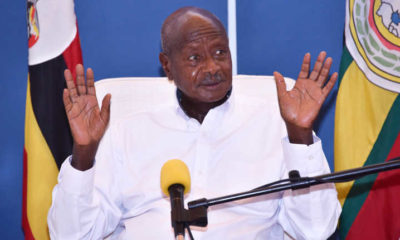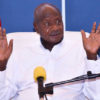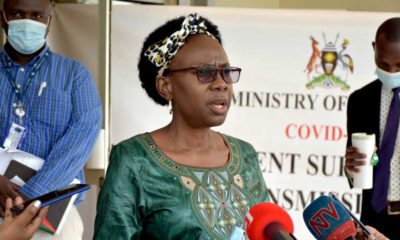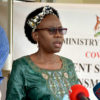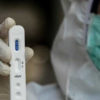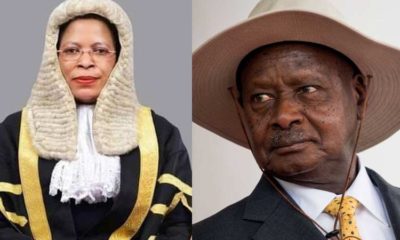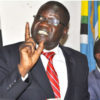Analysis
To Hunt them down or to Pay them to turn up for Coronavirus testing

Health minister Jane Ruth Aceng
The Ministry of Health is set to embark on what President Museveni agrees was a big task of tracking thousands of airline passengers who entered the country between March 7 and 22, before Entebbe International Airport was closed.
Health minister Dr. Jane Ruth Aceng revealed this week that during the ongoing 14-days stay home quarantine, her ministry with assistance from the Joint Security Coronavirus Task Force will endeavour to track down all airline passengers who entered the country in the two weeks before the airport was closed.
The objective of the exercise, as the minister explained, is laudable and seeks to suppress the spread of the deadly Coronavirus from spreading further into the population by retrieving those people who might have entered the country with the disease, so that they do not pass it on to other members of society.
However, the high-handed approach that is being employed threatens to bring the opposite result – rejection of the government’s otherwise well intentioned move.
During President Yoweri Museveni’s address to the nation yesterday, he was informed by Officials from the health ministry that they had obtained details of about 2,400 passengers who entered the country using Emirates, Ethiopian and Turkish Airlines. They told him they intend to Hunt Down all of them, with the help of security agencies and telephone operators.
It does not require a psychologist to predict that this policy is likely to boomerang. First of all it sends fear that who may eventually be found could be harassed and stigmatised for bringing into the country a deadly disease.
The president’s reference to returnees as Kawukumi, or weevils, does not offer any hope for those who would otherwise have voluntarily stepped forward to be be tested. As Uganda’s experience in the fight against AIDS has clearly demonstrated, Stigma greatly undermines public health causes.
Right from the onset of the crisis, the ministry of health errored in its handling of the Coronavirus crisis. The ministry slapped a punitive US$100 daily charge for staying in the quarantine facility. They argued that this was money meant to pay for the hotel facility. In other words, people were being penalised for bringing into the country a ‘deadly’ virus.
It was not surprising therefore when we learned that many chose to escape from the quarantine, as the cheaper option, and returning to their homes, resulting into the current national crisis that would perhaps not have been necessary.
Lessons from Taiwan
According to the BBC, in Taiwan, the country has become a global example of how to handle the Coronavirus. Drawing lessons from the 2003 SARS epidemic, Taiwan employed a combination of strict and soft steps in its control of the Coronavirus crisis.
Besides its swift response that including testing all international passengers, free testing for nationals, the country offered cash rewards to all the people who tested positive as a motivation for staying in the quarantine. But on the contrary, those who objected to the quarantine, faced penalties.
According to the Time Magazine, the government paid self-employed people $100 Singapore dollars ($73) per day, while employers are prohibited from detracting quarantine days from staffers’ annual leave, in case they test positive.
Using other steps such as mobile phone tracking, the country has managed to record some of the lowest COVID-19 infection rates in the world, despite its proximity to the Wuhan city where the outbreak originated.
Although it was one of the first three countries to report the presence of the coronavirus outside China, by April 4, 2020 it had registered just 355 cases of COVID-19 and 5 deaths.
It appears to me that using the Carrot and Stick strategy of persuading them to voluntarily come out to be tested, would bring results faster and more cheaply, in the process, than using the army to hunt people from their hideouts.
The government can create a one-week window within which all those that voluntarily turn up are given money that they can leave behind to support their families as they spend time in the quarantine.
Comments



